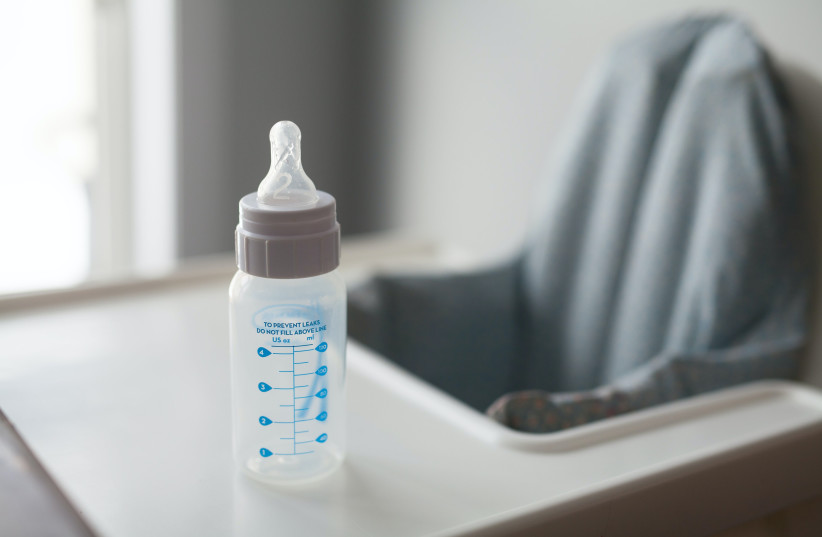The director of Magen David Adom’s Blood Services Division – which is responsible for the Health Ministry’s breast-milk bank, has expressed concern that unsupervised milk donations from abroad or even in Israel could be a target for the introduction of toxins meant to harm or even kill babies.
Magen David Adom has issued a warning to Israelis against using human breast milk that has recently been sent from other countries, explaining it could endanger the lives of babies and even cause death.
Prof. Eilat Shinar, assured the public that the Sussman Milk Bank has no shortage of milk now. She suggested that those living in other countries who wished to donate human milk should do so at their local milk banks. In the event of a future shortage, MDA would form a contingency agreement with those banks and receive reinforcements.
Over the weekend, officials at MDA’s Human Milk Bank learned that coolers storing breast milk had arrived in Israel from other countries without the milk being tested. According the Health Ministry, only milk from the Sussman Milk Bank – which meets strict supervision conditions and passes all the necessary tests – should be provided to babies who need it, such as preemies.
Since the beginning of the war, the milk bank has been especially active, providing breast milk to babies who were orphaned, whose mothers were kidnapped or injured during Hamas attacks, as well as those whose mothers were recently deployed by the Israel Defense Forces.

Where to make and receive donations?
In light of the initiatives on social networks to donate breast milk, the ministry is suggesting that donations be made through the mother’s breast-milk bank; according to the recommended process, portions would be tested and deemed safe for consumption by the babies.
“Breast milk bound for Israel that is transported without supervision may be a target for the introduction of toxins meant to harm babies, warned Dr. Sharron Bransburg Tzbari, director of the milk bank. “The Sussman Milk Bank operates according to US Food and Drug Administration regulations to prevent the use of food as a means of harming and causing harm,” she added.
Eligible recipients are infants up to the age of six months. They rely on breast milk from their mothers who are absent because they were called to perform military reserve duty or they were wounded, kidnapped, or even murdered.
Mother’s milk can be provided for babies between the ages of six and 12 months who cannot consume baby formula due to an allergy or intolerance and whose families have a document testifying to this situation from a medical authority.
These donations are also available to babies up to one year of age if necessary to assist in their recovery and confirmed by a physician.
Also eligible are babies with any medical condition such as cancer that requires breast milk and whose family’s request is approved by a medical specialist.
In a situation in which there is no information about the babies’ nutrition, there is a priority in giving breast milk, the ministry said. These criteria may change depending on the security situation and available stock. The ministry will update as necessary.
Israelis who have need of human breast milk as part of the emergency program can contact 052-6653386, 073-260200, or milkbank@mda.org.il.
The ministry said it encourages breastfeeding women to continue do so in an emergency, as it has been proven to prevent disease and reduce stress.
Women who need help with breastfeeding or information regarding nutrition are invited to call the hotline for Tipat Halav – welfare clinic that provides healthcare services for pregnant women and children up to six years of age – at *5400, ext. 9, on Sundays from 4:00 p.m. to 9:00 p.m., and on Fridays from 8:00 a.m. to 1:00 p.m.
